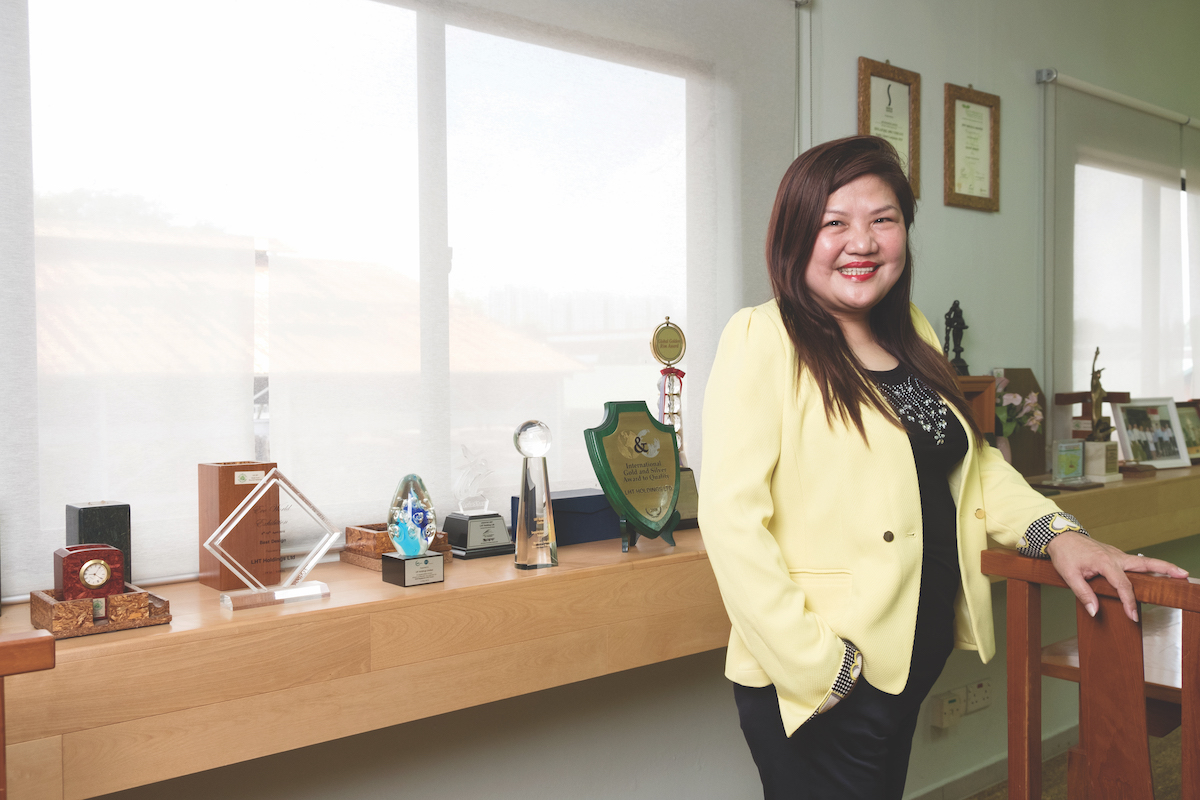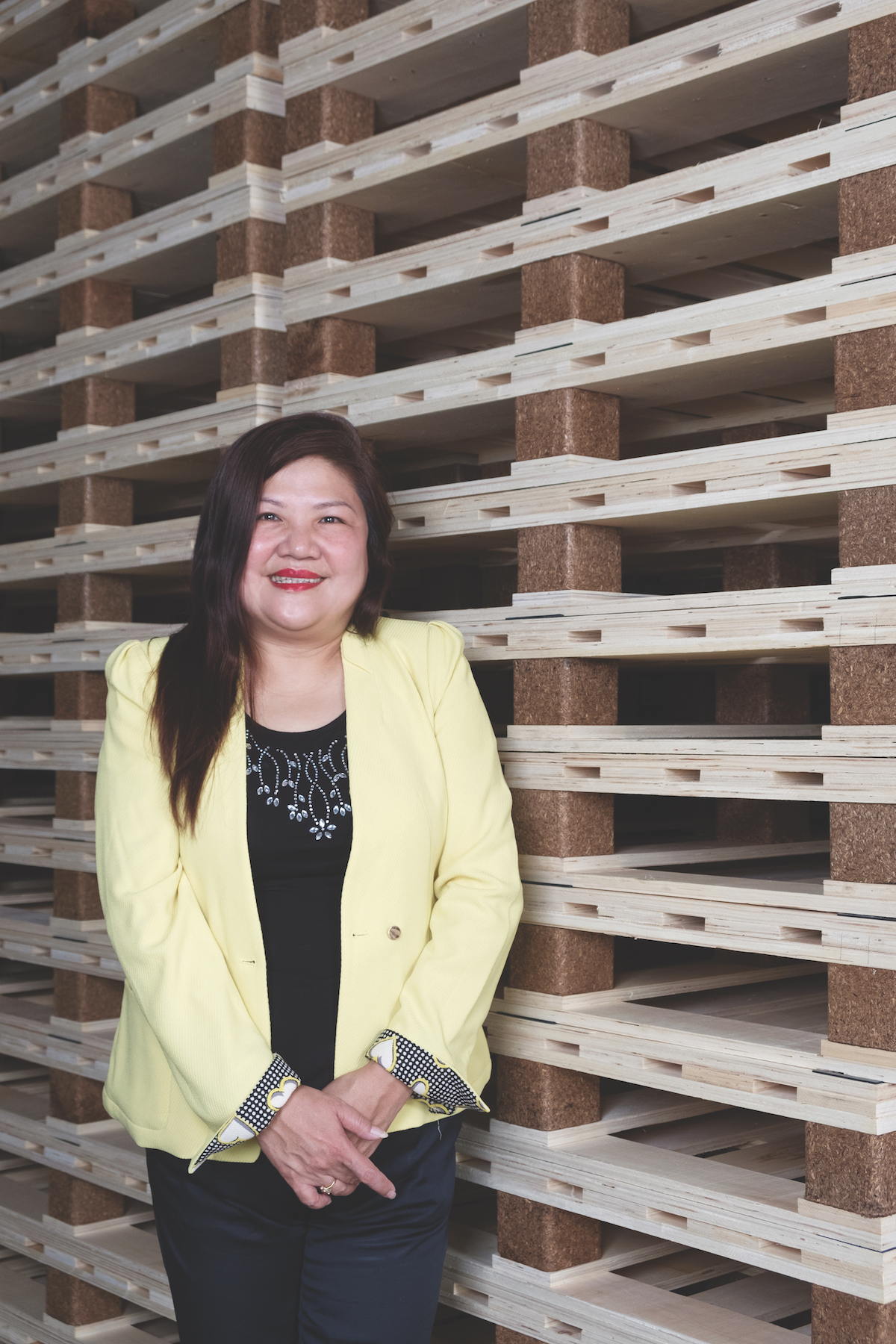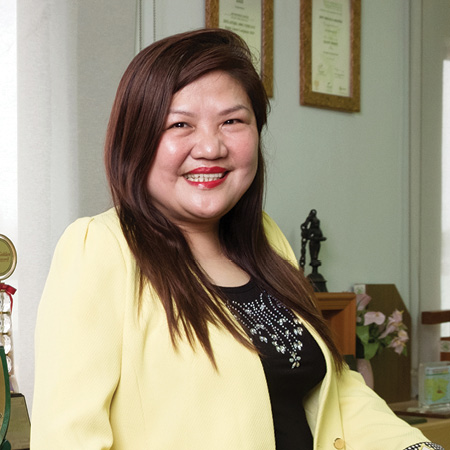In the fast-paced world of logistics, an industry forever drawing upon state-of-the-art technology such as drones to streamline workflow processes, it’s hard to believe there’s still so much disparity surrounding one of the most elementary parts of the transport process: the pallet.
“There are 16 different types of pallets in use in the market, and in Singapore we have 13 sizes alone!” exclaims May Yap, the CEO of LHT Holdings Limited. It feels as though there’s already enough confusion with the word’s homonyms — not palate, as in the sense of taste, or palette, as in the artist tool, but pallet, as in the wooden platform that serves as the base for bulk transport packaging. It’s hard to believe a global standard doesn’t already exist.
“Think of the benefits to industry as a whole if goods can leave the manufacturer and arrive at the retailer on the same pallet,” May continues enthusiastically. “Not only does the risk of damaging the goods in transit reduce significantly, but imagine the extent to which productivity can increase with the time saved on labour and handling of the goods. This can be transferred as a cost saving to the customer.”

Diversification
The last 20 years have seen LHT Holdings Limited build its business on pallets, after starting out as a sawmill in what May describes as a rural Singapore village in 1977. The opportunity to diversify presented itself in the late 90s when the company participated in Singapore’s Efficient Consumer Response (ECR) Pallet Standardisation Working Group in 1997. The result was the recommendation for a 4-way 1,000mm x 1,200mm pallet, which is compatible with both containers and trucks and the prevalent dimensions used across the
region.
Today, with a core focus on the FMCG industry, the company leases and manufactures pallets of various sizes and also fabricates boxes, crates, flooring and furniture components. Services offered include logistics support, waste disposal and industrial packaging. Fortune 500 companies and multinationals are listed among its client base.
“We have our own manufacturing plant at Sungei Kadut in Singapore, which is more than 63,000 square metres in size,” May says. The area, to the north of Singapore, is renowned as a destination for furniture, and hosts many timber manufacturing operations. May has been with the company from its early sawmill days, joining in 1980 as the director’s secretary. In her current position as CEO, her responsibilities include overseeing sales and marketing in Singapore and around the globe.

“The fact that we’re able to offer a locally produced, green product at a stable price, and of a good quality, is how we’ve been able to grow the business.” – May Yap
A strong environmental philosophy
“I explore and identify opportunities in new markets,” she continues, before surmising that essentially she’s tasked with improving overall company activity. Arguably her most important role to date, however, has been “to handle the strategy required to make the company more innovative and green-friendly.” “In 1999, we established a waste recycling plant,” she says. The first of its kind in Singapore, the site answered questions about turning timber industrial waste into a functional product in a country where land is at a premium. “Approved companies can offload their unwanted wood to us,” May says, “and we transform the offcuts into a high-density constitute wood known as Greenflo Technical Wood, which can be used in furniture, building and heavy-duty industry.”
The company has further innovated with a series of environmentally friendly pallets known as the Innovative Process Product Conversion (IPPC) pallet. Timber waste is treated at high temperatures and high pressures and converted into pest- and fungus-resistant pallets that are also fire retardant. International Plant Protection Convention (ISPM15) compliant, these pallets are suitable for export use.
She is justifiably very proud of all that the company has achieved. “We’ve received recognition from government agencies, and we work with partners who understand our strong environmental philosophy and share our belief in green, recycled products.”
Growing the business
Its sustainable initiatives also served to solve another challenge the company faced during a period of financial instability. “Actually, our normal timber comes from Malaysia, and during the rainy season we’re not guaranteed to receive all the supplies we require. When you add the hesitation of our clients to pay the increased prices which have accompanied Singapore’s growing economy, the fact that we’re able to offer a locally produced, green product at a stable price, and of a good quality, is how we’ve been able to grow the business.” Grow the business is exactly what May and her team have been busy doing. “We’ve been able to turn the company around from a position where we were losing money to one where we’re growing at 10% per annum,” she says. May is also quick to emphasise the importance of integrating new technologies into the business in order to simplify the work process and therefore increase productivity. “We have a fully automated pallet assembly line and computerised database,” she says. “This means we’re able to offer greater accuracy and quality to our customers at more attractive costs.”
She identifies digital inventories as an area of current focus. “I’m also focused on continuing to make the company more sustainable,” she adds, saying that the role the company plays in conservation is at the core of its mission.
In the fortunate position of counting a loyal regional client base as its strongest asset, May acknowledges that LHT Holdings Limited is well placed to expand internationally. “We have a very strong business and an array of environmentally friendly products that we can take to the international market. We’re continually striving to create value for our shareholders.”



